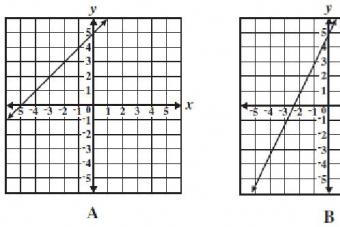Laws are the source of law or the form of its expression. This thesis was developed many years ago by legal theorists. An interesting fact is that the law regulates social relations of any nature. That is, going to the store, driving a car, ordering pizza by phone - these are all legal facts that give rise to a legal relationship. However, the points listed are positive. They are found in the daily life of a person. At the same time, certain individuals quite often perform actions that run counter to public morality, in other words, are negative. In the scientific community, they have their own name - offenses.
In turn, actions of this nature are also subdivided into certain types, depending on the degree of their danger to society. Thus, they single out offenses and crimes themselves, which are the most harmful acts of people. Criminal law is a legal branch that regulates legal relations of the highest public danger. But in the context of this article, we will not consider the entire complex of crimes, but only one of them, namely coercion into actions of a sexual nature. governed by regulation 133
Criminal law concept
Before considering Art. 133 of the Criminal Code of the Russian Federation, it is necessary to understand the specifics of the industry in which responsibility for this act is provided. Today, this is the legal sphere of criminal law. An industry of this type regulates the whole system of social relations arising in the sphere of people committing crimes, that is, acts that have the highest social danger. In addition, criminal law also provides for the existence of certain measures of influence on violators of the legislative order, the application of which is carried out in the process of bringing them to legal responsibility. On the basis of the presented industry, a scientific discipline and a separate structure of regulatory legal acts were created. The basis for the legal responsibility of criminal law is a special codified law, the Criminal Code. It is in it that there is an article that fixes the punishment for compulsion to acts of a sexual nature.
History of the crime
In domestic legislation, such a socially dangerous act as compulsion to acts of a sexual nature did not always exist. It was first enshrined in the Criminal Code in 1923. However, the internal structure of this crime was somewhat different. In the first half of the 20th century, only the coercion of women by men was condemned, on whom the fairer sex depended by virtue of their official position or financially. In other words, this provision of the Criminal Code in the 1920s had a rather narrow specificity. Later, the form of the crime expanded significantly. The renewed responsibility provided for punishment for compulsion not only to sexual intercourse, but also to other actions aimed at satisfying passion.
It should be noted that in those days, scientists very often criticized the presented norm for its ineffectiveness. The problem was the very fact of the compulsion. The bottom line is that the criminal did not always use his financial or official position. Quite often, threats, blackmail, etc. were used to obtain sexual satisfaction. In this case, one should not reject the possibility of personal dependence that arises between a stepdaughter and stepfather. In addition, not only women, but also men can act as victims. In accordance with this, the legal norm has been repeatedly revised and supplemented in every possible way. But it was only in 1996 that the completed and most successful article was presented, which enshrined the punishment for coercion.

Article 133 of the Criminal Code of the Russian Federation with comments
Rule 133 establishes the punishment for compulsion to acts of a sexual nature. In this case, many people have a question about what exactly can be attributed to such actions. The bottom line is that a direct request for sexual intercourse will not fall within the scope of this article. For criminal liability to come, compulsion must have a negative, illegal character. This, in turn, is achieved through blackmail, various threats, active actions in the form of seizure or damage to property, as well as the use of the victim's dependence on the offender. It should also be noted that the induction can be carried out to enter into sexual intercourse, both natural and unnatural (sodomy, lesbianism, etc.). In this case, Articles 131, 133 of the Criminal Code of the Russian Federation are opposite. After all, with rape, we are only talking about intercourse between a man and a woman. In this case, in order to understand in more detail all aspects of Art. 133 of the Criminal Code of the Russian Federation, it is necessary to consider its constituent elements. This can be done by highlighting the key elements of a socially dangerous act.

Art. 133 of the Criminal Code of the Russian Federation: corpus delicti
Compulsion to, like other socially dangerous acts provided for by the Criminal Code, includes several basic elements. Art. 133 of the Criminal Code of the Russian Federation is characterized by a standard composition, which includes:
- subject;
- an object;
- the side is subjective;
- the side is objective.
Each element is endowed with many aspects that highlight the characteristics of the crime, as well as the specific features of the punishment for it.
Objective side of Article 133 of the Criminal Code of Russia
The crime presented in the article can be committed by active action, which is compulsion to have sexual intercourse. That is, the face forces the victim to satisfy his sexual desire. This kind of action can be expressed in many different ways. Most often, compulsion takes the form of blackmail or threats of seizure, destruction of certain property. In the first case, we are talking about the manipulation of the victim by the possibility of disseminating any personal information about her.

Information in this case should be secret and unknown to a wide range of people. With regard to the threat of seizure of property or its destruction, then such actions can also be considered as a form of inducement. Threats can be of a different nature. For example, due to service dependence, the perpetrator may threaten the victim of coercion with dismissal.

Who is the subject of Article 133. The subjective side of the crime
The person who will be held liable for the commission of coercion is a person who has reached the age of 16. If the victim is financially or functionally dependent on the subject, then this fact is a special characterizing parameter. In this case, the offender takes a dominant position over another person, which allows him to implement the composition of Article 133 of the Criminal Code of the Russian Federation.
It is always characterized by direct intent. That is, a person not only realizes the unlawfulness and social danger of his actions, but also wants the consequences of their commission. Motives tend to have a sexual framing, although they may be completely different.
What is the object of article 133?
The object of any crime is certain social relations, which are protected by current legislation. In the case of Article 133 of the Criminal Code of the Russian Federation, human sexual freedom is harmed. In this case, there is a violation of the right to choose a subject with whom it is best to have sexual intercourse. A number of additional objects can also be distinguished, for example, the dignity and honor of a particular person.

Qualifying features
When analyzing Article 133 (2) of the Criminal Code of the Russian Federation, it is possible to single out the aggravating circumstances of the commission of the crime. In this case, there is only one qualifying aspect: the act is carried out in relation to a minor. In this case, the legislator raises the scope of criminal liability, because the object of the encroachment in this case is the child's sexual freedom. Judicial practice under Art. 133 of the Criminal Code of the Russian Federation in this case is not homogeneous, despite the fact that the victim is characterized by a special level of legal protection.

Conclusion
So, in this article we have analyzed the main points of Art. 133 of the Criminal Code of the Russian Federation. The verdict under this rule may vary depending on the punishment chosen by the court. Nevertheless, the functionality of the article is at a high level, which makes it possible to use it quite effectively today.
Forcing a person to have sexual intercourse, sodomy, lesbianism or other sexual acts by means of blackmail, threats of destruction, damage or seizure of property, or using the material or other dependence of the victim (victim) - is punishable by a fine of up to one hundred and twenty thousand rubles or in the amount of wages wages or other income of the convicted person for a period of up to one year, or compulsory labor for up to four hundred and eighty hours, or corrective labor for up to two years, or compulsory labor for up to one year, or imprisonment for the same period.
Part 2 of Art. 133 of the Criminal Code of the Russian Federation
The same act committed against a minor (minor) -
shall be punishable by forced labor for a term of up to five years, with or without deprivation of the right to hold certain positions or engage in certain activities for a term of up to three years, or by deprivation of liberty for a term of up to five years, with the deprivation of the right to hold certain positions or engage in certain activities for a term of up to three years, or without one.
Commentary on Art. 133 of the Criminal Code of the Russian Federation
Commentary edited by G.A. Esakov
1. A victim can be a person of any gender who has reached the age of 16. Compulsion of a person under 16 years of age to sexual intercourse, sodomy, lesbianism, followed by their commission, is qualified in conjunction with Art. 134 of the Criminal Code; while compulsion of a person under 16 years of age to commit other acts of a sexual nature with their subsequent commission is qualified in conjunction with Art. 135 of the Criminal Code.
2. The objective side consists in the act of forcing a person to have sexual intercourse, sodomy, lesbianism or other acts of a sexual nature in one of the ways specified in the law. These include: blackmail (that is, the threat to divulge information dishonoring a person, regardless of whether it is fictional or not); threat of destruction, damage or seizure of property; the use of material or other dependence of the victim (victim). The fact when the perpetrator promises to implement his threats (immediately or in the future) does not affect the qualification of the deed. At the same time, threats can be expressed both in relation to a person who is forced into actions of a sexual nature, and in relation to persons close to him.
3. The crime is over from the moment of compulsion; the fact of committing future acts of a sexual nature does not affect qualifications.
4. The subject of a crime is special when an act is committed using the material or other dependence of the victim (victim). It is the person depending on whom the victim (victim) is. In other cases, the subject of the crime is common.
5. The qualified corpus delicti (part 2) assumes responsibility for the commission of a crime against a person under 18 years of age.
Commentary on Article 133 of the Criminal Code of the Russian Federation
Commentary edited by A.I. Rarog
1. The act in this corpus delicti consists in active actions, consisting in the form of mental coercion (threat), aimed at forcing a person against his will and desire to commit acts of a sexual nature. To compel - means to compel to perform any actions. However, not every compulsion constitutes the structure of this crime, but only committed using the methods specified in the law: a) blackmail; b) threats of destruction, damage or seizure of property; c) material or other dependence of the victim.
2. The nature of the threat distinguishes this crime from rape. In the case of rape, the perpetrator threatens with physical violence, and in the crime under consideration - with the disclosure of defamatory information, destruction, damage or seizure of property or infringement of the material or other interests of the victim (victim). In case of rape, the threat is immediate, but in this crime, its implementation is possible in the future.
Blackmail is understood as a threat to disclose information that dishonor the victim (victim) or his relatives, in the disclosure of which the person is not interested. Information can be both true and false. In the event of real disclosure of knowingly false information discrediting another person, the deed forms an aggregate with Art. 129 of the Criminal Code.
Destruction of property is understood to mean bringing it into complete disrepair, preventing its further use.
Damage to property is such a change in its functional properties, when it is necessary to make repairs to bring it to its original state.
With the seizure of property, the victim is deprived of the opportunity to use and dispose of it.
Coercion by threat of seizure of property will also be evident in the case when the owner of the property in use by the victim is the guilty one.
Coercion into acts of a sexual nature, committed through the threat of destruction, damage or seizure of property, does not cover the actual implementation of the threat. In the case of the actual implementation of these actions, qualifications are required in the aggregate of Art. 133 of the Criminal Code and related articles on crimes against property.
3. Material dependence means that the victim is fully or partially dependent on the perpetrator or, for example, lives in his living space. Another dependence can be, for example, an official one, when the victim is subordinate or controlled by the guilty person in the service, or it can arise in the learning process between a teacher and a student, or between a victim and an official authorized to perform official actions in the interests of the victim.
The use of material or other dependence for the purpose of sexual intercourse, sodomy, lesbianism or other sexual acts forms coercion only in cases where the perpetrator threatens to infringe on the victim's legitimate interests, for example, dismissal from work, lower wages, deprivation of housing, refusal to give a positive assessment with the necessary knowledge, and does not promise to provide benefits and benefits. Only one proposal to make the specified in Art. 133 of the Criminal Code, actions in the presence of material and other dependence do not form the corpus delicti of this crime.
4. The crime is completed from the moment of compulsion to acts of a sexual nature. The consent or refusal of the victim to perform these actions, as well as their actual implementation with a person who has reached the age of 16, does not affect the qualification of the deed.
5. Coercion and subsequent sexual intercourse of a person who has reached the age of 18, with a person who is known to have not reached the age of 16, should be classified under the totality of Art. Art. 133 and 134 of the Criminal Code, and in case of coercion, combined with the commission of lecherous acts against a person, obviously under 16 years of age, - under Art. Art. 133 and 135 of the Criminal Code.
6. The subjective side is characterized by guilt in the form of direct intent.
7. The subject may be a person, either female or male, at least 16 years of age.
1. Coercion of a person to sexual intercourse, sodomy, lesbianism or other acts of a sexual nature by means of blackmail, threat of destruction, damage or seizure of property, or with the use of material or other dependence of the victim (victim) -
shall be punishable by a fine in the amount of up to one hundred and twenty thousand rubles, or in the amount of the wage or salary, or any other income of the convicted person for a period of up to one year, or by compulsory works for a term of up to four hundred and eighty hours, or corrective labor for a term of up to two years, or compulsory labor for a term of up to one years, or imprisonment for the same period.
2. The same act committed against a minor (minor) -
shall be punishable by forced labor for a term of up to five years, with or without deprivation of the right to hold certain positions or engage in certain activities for a term of up to three years, or by deprivation of liberty for a term of up to five years, with the deprivation of the right to hold certain positions or engage in certain activities for a term of up to three years, or without one.
Comments to Art. 133 of the Criminal Code of the Russian Federation
1. The direct object of the crime is sexual freedom or sexual inviolability of the person. The honor and dignity of victims or their property may be optional objects. Victims can be either male or female.
2.From the objective point of view, the crime in question is expressed in forcing a person to have sexual intercourse, sodomy, lesbianism or commit other acts of a sexual nature by means of blackmail, threat of destruction, damage or seizure of property or using the material or other dependence of the victim (victim).
Coercion means a mental impact on the victim (victim) in order to force her (him) to have sexual contact with another person against their will. In this case, it is a way of suppressing the will and obtaining consent, albeit forced, to enter into a heterosexual or homosexual relationship, lesbianism, or to commit other acts of a sexual nature. Coercion can be expressed verbally, in writing, or in other form.
3. The law contains a strictly limited list of means and methods of suppressing the will of the victim (victim):
blackmail, i.e. threat of disclosure of information compromising the victim, intimidation;
threat of destruction, damage or seizure of property - intentions expressed outside to perform these actions in relation to all property or part of it (this should significantly affect the interests of another person in order to act as a factor suppressing his will; the implementation of this threat is not covered by Article 133 of the Criminal Code and requires independent qualifications);
material dependence - being in full or partial, but essential dependence from the guilty person on legal grounds or with his voluntary consent;
other dependence - any dependence other than material dependence, characterized by the absence of full or partial independence, freedom, the presence of subordination in service, work or study, etc.
Obtaining the consent of the victim (victim) to commit acts of a sexual nature in another way (by deception, promise of protection or other assistance) does not fall under the signs of Art. 133.
4. The crime in question is considered completed from the moment of compulsion to acts of a sexual nature.
5. The subjective side is characterized by direct intent. The guilty (guilty) realizes that by blackmail, threats of destruction, damage or seizure of property, or with the use of material or other dependence, he forces the victim (victim) to sexual intercourse, sodomy, lesbianism or other acts of a sexual nature, and wishes to do so. The motive is sexual, it does not matter for the qualification of the crime.
6. The subject of a crime is special, when it comes to a victim (victim) who is (is) in material or other dependence; in all other cases - any individual (regardless of gender) who has reached the age of 16.
The full text of Art. 133 of the Criminal Code of the Russian Federation with comments. New current edition with additions for 2020. Legal advice on Article 133 of the Criminal Code of the Russian Federation.
1. Coercion of a person to sexual intercourse, sodomy, lesbianism or other acts of a sexual nature by means of blackmail, threat of destruction, damage or seizure of property, or with the use of material or other dependence of the victim (victim) -
shall be punishable by a fine in the amount of up to one hundred and twenty thousand rubles, or in the amount of the wage or salary, or any other income of the convicted person for a period of up to one year, or by compulsory works for a term of up to four hundred and eighty hours, or corrective labor for a term of up to two years, or compulsory labor for a term of up to one years, or imprisonment for the same period.
2. The same act committed against a minor (minor) -
shall be punishable by forced labor for a term of up to five years, with or without deprivation of the right to hold certain positions or engage in certain activities for a term of up to three years, or by deprivation of liberty for a term of up to five years, with the deprivation of the right to hold certain positions or engage in certain activities for a term of up to three years, or without one.
Commentary on Article 133 of the Criminal Code of the Russian Federation
1. Corpus delicti:
1) object: public relations in the field of protection of sexual inviolability and sexual freedom of the individual;
2) the objective side: characterized by an act in the form of an action - forcing a person to have sexual intercourse, sodomy, lesbianism or committing other acts of a sexual nature, where coercion is a mental impact on the victim in order to obtain his consent to commit acts of a sexual nature (the methods of coercion are indicated in Part .1 of the commented article);
3) subject: an individual who has reached the age of 16, while in the case of compulsion using material or other dependence, it is necessary that the victim was in such dependence on the perpetrator;
4) subjective side: characterized by intentional guilt in the form of direct intent. The perpetrator realizes that he is forcing the victim (victim) to have sexual intercourse using the methods specified in the law, and wants to carry out his plan. The motive for the crime is the desire to satisfy the sexual need.
The qualifying signs of a crime include the same act committed against a minor (minor).
2. Applicable Law. Federal Law "On Administrative Supervision over Persons Released from Places of Deprivation of Liberty" (Article 3).
3. Judicial practice. By definition of the RF Armed Forces N 45-097-97 (cassation instance), the verdict in terms of conviction of Gr. under Art. 133 of the Criminal Code of the Russian Federation (compulsion to actions of a sexual nature) with the termination of the case in this part for lack of corpus delicti and recognized gr. guilty of committing lecherous acts. The investigating authorities qualified the actions of Mr Sh. by, however, the court re-qualified them to Art. 133 of the Criminal Code of the Russian Federation. However, the court did not take into account that the disposition of Art. 133 connects the presence of corpus delicti with specific acts of a sexual nature, to the commission of which the perpetrator compels the victims, and not just under threat, as indicated in the verdict, but through blackmail, threats of destruction, damage or seizure of property, or using the material or other dependence of the victims. There was no such method of influencing the victims in the actions of the convicted person, therefore, there is no corpus delicti in them (see in more detail the Review of the judicial practice of the RF Armed Forces for the first quarter of 1998 (in criminal cases) (approved by the Decree of the Presidium of the RF Armed Forces of May 6, 1998) ).
Consultations and comments of lawyers under Article 133 of the Criminal Code of the Russian Federation
If you still have questions about Article 133 of the Criminal Code of the Russian Federation and you want to be sure of the relevance of the information provided, you can consult the lawyers of our website.
You can ask a question by phone or on the website. Initial consultations are held free of charge from 9:00 to 21:00 daily Moscow time. Questions received from 21:00 to 9:00 will be processed the next day.
Criminal Code, N 63-FZ | Art. 133 of the Criminal Code of the Russian Federation
Article 133 of the Criminal Code of the Russian Federation. Coercion to Sexual Acts (current version)
1. Coercion of a person to sexual intercourse, sodomy, lesbianism or other acts of a sexual nature by means of blackmail, threat of destruction, damage or seizure of property, or with the use of material or other dependence of the victim (victim) -
shall be punishable by a fine in the amount of up to one hundred and twenty thousand rubles, or in the amount of the wage or salary, or any other income of the convicted person for a period of up to one year, or by compulsory works for a term of up to four hundred and eighty hours, or corrective labor for a term of up to two years, or compulsory labor for a term of up to one years, or imprisonment for the same period.
2. The same act committed against a minor (minor) -
shall be punishable by forced labor for a term of up to five years, with or without deprivation of the right to hold certain positions or engage in certain activities for a term of up to three years, or by deprivation of liberty for a term of up to five years, with the deprivation of the right to hold certain positions or engage in certain activities for a term of up to three years, or without one.
- BB code
- Text
Document URL [copy]
Commentary on Art. 133 of the Criminal Code of the Russian Federation
Judicial practice under article 133 of the Criminal Code of the Russian Federation:
- Decision of the Supreme Court: Determination N 72-О13-22SP, Judicial Collegium for Criminal Cases, cassation
He was also acquitted under part 1 of article 209 and part 1 of article 222 of the Criminal Code of the Russian Federation on the basis of the verdict of the jury in view of the failure to establish the event of the crime. In accordance with paragraph 4 of part 2 of Art. 133 of the Code of Criminal Procedure of the Russian Federation, the right to rehabilitation is recognized for him and the procedure for compensation for harm is explained; Kravtsov VV, defendant, acquitted under Part 2 of Article 209 of the Criminal Code of the Russian Federation on the basis of a not guilty verdict of the jury due to the failure to establish the event of the crime ...
- Decision of the Supreme Court: Determination N 5-О12-130, Judicial Collegium for Criminal Cases, cassation
It is impossible to agree with this conclusion of the court, since it is based on a one-sided assessment of the evidence presented, without a thorough investigation of all the circumstances associated with the provision of legal services to Sipin. In accordance with the requirements of h.h. 2 and 3 st. 133 of the Criminal Code of the Russian Federation, the right to rehabilitation, including the right to compensation for harm associated with criminal prosecution, have persons who have been acquitted, as well as any person ...
- Decision of the Supreme Court: Determination N 89-О12-24SP, Judicial Collegium for Criminal Cases, cassation
The acquitted KARPOV P.M. in the form of detention canceled. P. M. KARPOV released from custody in the courtroom. In accordance with the provisions of Art. 134 chL of the Criminal Code of the Russian Federation for the acquitted KARPOV P.M. the right to rehabilitation is recognized; explained under Art. 133 of the Criminal Code of the Russian Federation the right to compensation for property damage, elimination of the consequences of moral harm, restoration of labor, pension and other rights ...





